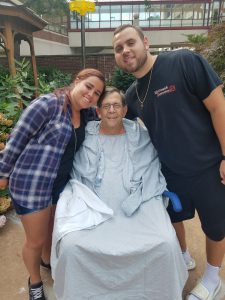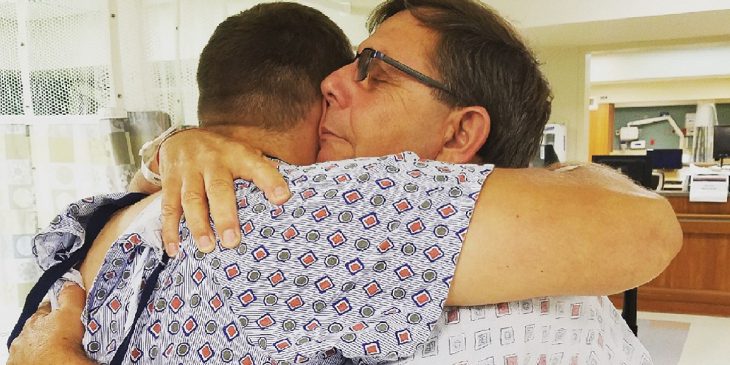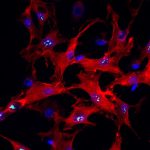When Bob Plummer was young, heroin nearly ruined his life.
Through perseverance and support, however, he became drug-free and has remained that way for the past 42 years. Inspired by his past, he went on to create Pittsburgh’s first Narcotics Anonymous program, hoping he could stop others from ending up like him.
Still, Plummer couldn’t escape the physical impacts of his previous addiction. In 2013, he was diagnosed with liver cancer, which left him scrambling to get on the liver transplant waiting list.
Before seeking care at UPMC, Plummer was told by experts at other medical facilities that due to the progression of his illness, there was nothing they could do.
“They told me to go home and make a bucket list,” he said. “I wasn’t satisfied with that response. I wasn’t ready to give up.”
That’s when he decided to get a second opinion at UPMC, where he was told there was another option for him — living-donor liver transplant. This process involves a perfectly healthy person who willingly donates a portion of his or her liver to someone in need of a transplant. Due to the liver’s unique ability to regenerate, donors continue living a healthy life post-transplant.
Getting a liver donation from a living donor would allow Plummer to avoid the waiting list and get his life-saving transplant faster and in a healthier state. About 14,000 people are now on the waiting list for a liver transplant nationwide, and around 25 percent die before ever receiving an organ from a deceased donor.
“At that point, the transplant was my only option,” he said. “All I could do was hope that everything would be OK and that I would make it to surgery, which is why finding a living donor was so important.”

Bob Plummer with his daughter, Laura, and his son, Robert. Plummer also has another daughter, Laura Schober, who has given him support along the way.
When trying to find a living donor, the first place Plummer looked was home. One afternoon, he sat down his daughter, Laura Plummer, 28, and son, Robert Plummer, 22, to see if they would be willing to donate, and they both said yes. Ultimately, it was Robert Plummer who ended up stepping forward to help save his dad through a living donor transplant.
“At first, I didn’t even know a living-donor liver transplant was possible,” Robert Plummer said. “I just wanted to help my dad, but the more I learned about it through UPMC, the more I realized how amazing the procedure really was.”
Despite his great health and spirits, when Robert Plummer went in for initial testing, the physicians discovered that he had an incompatible blood type to his dad’s. However, he was still eager to help and wanted to know what his other options were — if there were any at all.
“We talked to Robert about a treatment protocol we have at UPMC that allows us to transplant a portion of a liver from a living donor even if the blood types do not match,” said Dr. Christopher Hughes, surgical director of liver transplantation at the Thomas E. Starzl Transplantation Institute. “Although the possible risk of rejection is higher, we believed we could avert the rejections with medications that would prepare his immune system for the new organ.”
After several weeks of manipulating the immune system and preparation, a successful 12-hour surgery took place last July.
“I was absolutely terrified, but the surgical team and the thought of helping my dad kept me going,” Robert Plummer said.
The successful transplant was much more than an operation — it was a perfect example of love and sacrifice.
“This is the kind of story that really touches your heart,” Hughes said. “A father battling for his life and a son who comes to his side to give of himself and battle right alongside him.”
Almost a year later, both Bob and Robert Plummer are doing well and are still living in the Pittsburgh area. After healing and recuperating, Bob has become an advocate for fighting against the opioid epidemic, as he frequently mentors prisoners and owns a men’s recovery home for struggling addicts.
As for Robert Plummer, his new goal post-surgery is making sure everyone knows that living donation is an option.
“I promote UPMC and living donation every chance I get,” he said. “I also try to educate people about organ donation in general. It saved my dad, and I can only imagine how many other people there are out there who need a hero.”
With a new liver and a brand-new outlook on life, Bob Plummer said he tries to stay focused on what he has to look forward to. From time to time, however, he said he looks back on what his life used to be like, just so he can recognize how far he has come.
“I like to say I’ve lived three lives,” he said. “My first life, I messed up. My second life gave me my kids. And then, between my son and UPMC, I got my third life. I couldn’t be more grateful.”
For more information about live donor transplant, click here.
To get more stories like this directly to your inbox, subscribe to our weekly Inside Life Changing Medicine newsletter at bit.ly/upmc_newsletter.









